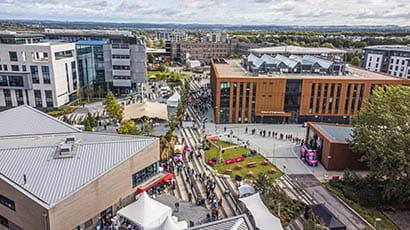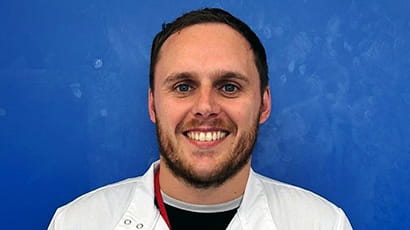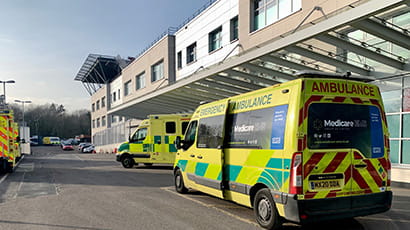Teen dislike of physical appearance strong predictor of depression in early adulthood

Teens who are unhappy with their physical appearance are at significantly heightened risk of depression by the time they reach early adulthood, reveals the first UK study of its kind, published online in the Journal of Epidemiology & Community Health.
The study was led by researchers Dr Helena Lewis-Smith, Dr Amy Slater and Dr Isabelle Bray from UWE Bristol and Dr Anna Bornioli from Erasmus University Rotterdam. The findings show that the size of the increased risk ranges from 50% to 285% with boys more likely to experience severe depression than girls.
Dislike of one’s physical appearance, formally known as body dissatisfaction, affects up to 61% of teens worldwide. It has been identified as a risk factor for eating disorders, unhealthy behaviours, and poor mental health.
Most published research on body dissatisfaction and depression has been carried out in the US, and few studies have explored the issue among young men and Millennials--those born between 1981 and 1997-- to factor in the influence of the internet, technology, and social media.
In a bid to plug these knowledge gaps, the researchers drew on nearly 4000 participants in the Avon Longitudinal Study of Parents and Children (ALSPAC), a population-based long term tracking study of women and their children born in 1991/2 and living in Somerset, England.
When they were 14, some 3753 teens were asked to rate satisfaction with their physical appearance by scoring their weight, figure, body build and specific areas, including breasts, stomach, waist, thighs, buttocks, hips, legs, face and hair, on a 5-point scale, where 0 equals ‘extremely dissatisfied’ and 5 equals ‘extremely satisfied’.
Both the boys (1675) and the girls (2078) were mildly satisfied with their body, overall. But girls were more dissatisfied than boys. Girls tended to dislike their thighs, stomach, and weight, but liked their hair and hips. Boys tended to be dissatisfied with body build, stomach, and hips, but weren’t bothered about their hair, weight, or legs.
Nearly 1 in 3 (32%) of the girls and around 1 in 7 (14%) of the boys were dissatisfied with their weight, and around 1 in 4 (27%) girls and 1 in 7 (14%) boys were dissatisfied with their figure.
When they were 18, depressive symptoms were formally assessed using a validated scale (CIS-R). Girls were more likely to experience episodes of depression than the boys. One in 10 (10%) of the girls reported at least one mild depressive episode compared with 1 in 20 (5%) of the boys. Nearly 7% of the girls and nearly 3% of the boys reported at least one moderately severe depressive episode, while severe depressive episode(s) affected 1.5% of the girls and less than 1% (0.7%) of the boys.
Analysis of the data revealed that body dissatisfaction at the age of 14 predicted depressive episodes of all degrees of severity among the girls, and mild and severe depressive episodes among the boys by the time they were 18 years old. These findings held true, even after taking account of depressive symptoms at the age of 14.
Among the girls, each increase in the body dissatisfaction scale at the age of 14 was associated with a heightened risk of experiencing at least one mild (63%), moderate (67%) and/or severe (84%) depressive episode at the age of 18. The strength of this association increased with the severity of the depressive episode.
The impact of body dissatisfaction on mild depressive episodes was comparable between boys and girls, but its impact on severe depressive episodes was stronger among the boys.
Each increase in the body dissatisfaction scale at the age of 14 among the boys was associated with a heightened risk of experiencing at least one mild (50%) and/or severe (285%) depressive episode at the age of 18.
“It is possible that in the era of social media and increasing pressures on body ideals, male adolescents have also become sensitive to [idealised body image] pressures, which may translate into later depressive episodes,” suggest the researchers.
The researchers acknowledge that the lack of ethnic and socioeconomic diversity in the ALSPAC data, and the absence of any information on sexual orientation may limit the wider applicability of the findings. And the measure of body dissatisfaction assessed in the questionnaires was skewed towards female appearance ideals.
Nevertheless, they conclude: “These findings demonstrate that body dissatisfaction should be considered as a public health issue of pressing concern. [It] is highly prevalent among young people in the general population and has an increasing incidence; the findings indicate that reducing body dissatisfaction might be an effective strategy to reduce mental health issues.”
Related news

12 December 2025
UWE Bristol’s environmentally conscious and student-focused accommodation wins three awards
Purdown View, the world's largest certified Passivhaus student accommodation development, has been recognised at Property Week Student Accommodation Awards.

13 November 2025
Alliance Medical and UWE Bristol launch UK’s first PET-CT postgraduate certificate
In a move set to transform imaging education, Alliance Medical (AML) and UWE Bristol have joined forces to co-design and develop the UK’s first PET-CT Postgraduate Certificate (PG Cert).

10 November 2025
Lessons from Low Traffic Neighbourhoods will drive better public engagement, study finds
Lessons from Low Traffic Neighbourhoods have informed a new toolkit to improve engagement with the public on challenging local street issues.

29 September 2025
Smartphone use hitting struggling pupils hardest, major study finds
Young people struggling with their studies at school are much more likely to have negative experiences on their smartphones than their better performing peers, a major new study has found.

11 September 2025
New study to investigate augmented reality as an intervention for emotionally based school avoidance
A UWE Bristol researcher will support a new study exploring whether an augmented reality board game can help young people with emotionally based school avoidance (EBSA).

28 July 2025
Student wins bronze medal at World Aquatics Championships on her graduation day
UWE Bristol sports rehabilitation student Izzy Thorpe made waves at the World Aquatics Championships winning a bronze medal in artistic swimming on the same day she was meant to be crossing the stage at her university graduation ceremony.

28 May 2025
Leading organisations fighting to end youth violence in cities join UWE Bristol event panel
Leaders from Bristol-based Empire Fighting Chance and Canadian non-profit REACH will speak at the next Bristol Distinguished Address Series.

09 May 2025
UWE Bristol among first universities in UK to introduce sanitary waste bins in male toilets
UWE Bristol is among the first universities in the UK to introduce sanitary waste bins in male toilets for the disposal of incontinence products.

11 April 2025
UWE Bristol academics among emerging scientific leaders to receive share of £7.6m for health research
Two UWE Bristol researchers are among the recipients of a £7.6 million investment from the Academy of Medical Sciences aimed at tackling urgent health challenges.

09 April 2025
New research to support a thriving health and care workforce is launched
A national research partnership will explore ways to support wellbeing and sustainability in the NHS and social care same day and urgent care workforce.

10 March 2025
UWE Bristol to explore the power of open water swimming at upcoming event with The Wave founder Nick Hounsfield
An inspiring tale of grit and resilience will be told to audiences at the first BDAS event of 2025 as UWE Bristol welcomes Nick Hounsfield, founder of The Wave.

28 February 2025
Paramedics in GP surgeries may ease workload but not NHS costs, study finds
Paramedics working in GP surgeries help reduce GP workload but do not contribute to cost savings to the NHS, according to the first major study of the clinical and cost-effectiveness of paramedic compared with GP consultations.






